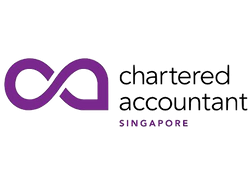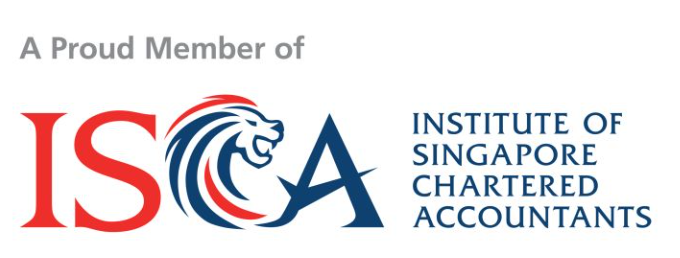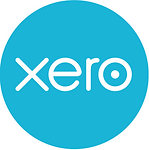税务服务
企业所得税
[trp_language language=”zh_CN”]
无论是新加坡本地公司还是外国公司,公司均应按其应税收入的17%统一税率纳税。
所有公司的一般规则
所有新加坡公司需要对上一个财政年度的收入征税。比2019财政年度的收入将在2020年征税。
评估基准期和年度
在税收方面,使用上面的相同例子,2020年是评估年(YA)。换句话说,YA是您的收入被评估征税的年份。
为了评估税额,新加坡国内税务局会查看公司财政年度的收入、支出等。这个财政年度被称为“基准期”
基准期一般为评估年(YA)之前的12个月。
[/trp_language] [trp_language language=”en_US”]Singapore’s corporate tax system is known for its competitive rates and pro-business policies, making it an attractive destination for both local and foreign companies. Here’s an overview of the key aspects of Singapore’s corporate tax:
- Corporate Tax Rate: Singapore has a flat corporate tax rate of 17% on chargeable income. This rate applies to both local and foreign companies.
- One-Tier Tax System: Singapore operates on a one-tier tax system, which means that corporate profits are taxed only at the corporate level. Shareholders receiving dividends from the company are not subject to further taxation on those dividends.
- Partial Tax Exemption: To support smaller companies, Singapore offers partial tax exemptions on taxable income:
- For the first SGD 300,000 of chargeable income, companies enjoy a 75% exemption.
- For the next SGD 200,000 of chargeable income, companies receive a 50% exemption.
This effectively reduces the effective tax rate for smaller companies.
- Start-Up Tax Exemption Scheme: Qualifying start-up companies can benefit from additional tax exemptions:
- For the first SGD 100,000 of chargeable income, companies receive a 75% exemption.
- For the next SGD 100,000 of chargeable income, companies receive a 50% exemption.
- Foreign-Sourced Income: Singapore follows a territorial tax system, which means that only income earned within Singapore or received in Singapore from overseas is taxed. Foreign-sourced income is generally exempt from taxation, with certain exceptions.
- Notional Interest Deduction (NID): To encourage businesses to fund their operations with equity instead of debt, Singapore introduced the NID scheme. This scheme provides a deduction for notional interest on equity used to fund certain business activities.
- Avoidance of Double Taxation: Singapore has an extensive network of Avoidance of Double Taxation Agreements (DTAs) with various countries. These agreements aim to prevent double taxation by providing mechanisms to allocate taxing rights between countries.
- Goods and Services Tax (GST): In addition to corporate tax, companies must also consider Singapore’s Goods and Services Tax (GST) when conducting business. GST is a value-added tax of 7% on the supply of goods and services.
- Tax Incentives for Specific Industries: Singapore offers various tax incentives to attract investments in specific industries, such as finance, technology, and research and development.
- R&D Tax Incentives: Singapore provides tax incentives to encourage companies to undertake research and development activities within the country.
- Enhanced Capital Allowances (ECAs): Companies can claim capital allowances on qualifying fixed assets, allowing for tax deductions on capital expenditures.
It’s important for companies to understand the tax regulations and take advantage of the available exemptions and incentives to optimize their tax liabilities. Consulting with tax professionals and understanding the specific circumstances of your business is recommended for accurate and compliant tax planning.
[/trp_language]
那些收入需要纳税
[trp_language language=”zh_CN”] 应纳税收入指:
- 任何贸易或业务的收益或利润;
- 股息、利息和租金等投资收入;
- 特许权使用费、保险费和任何其他财产利润;
- 其他本质上是收入的收益。
新加坡公司可以扣除营业费用、资本津贴和救济等费用,以减少应税收入,这会使得税务支出有所降低。
营业费用
营业费用是您为经营业务而支付的费用。一些例子是中央公积金供款、工资、装修、广告等。
营业费用可以抵扣,也可以不抵扣。当抵扣时,它们减少了您的应纳税所得额和您需要支付的税额。
可扣除的营业费用
一般来说,可扣除的业务开支是“完全和完全用于产生收入”的开支。换句话说,它们必须符合所有这些条件:
- 费用仅用于生产收入。
- 费用不是或有负债,即不取决于将来可能发生或不可能发生的事件。换句话说,费用必须发生。当支付费用的法律责任发生时,费用即“发生”,而不论实际支付款项的日期。
- 费用本质上是收入,而不是资本。
- 《所得税法》不禁止扣除费用。
不可扣除的营业费用
不可扣除的营业费用是指您或您的员工支付的不符合上述条件的活动。这包括个人支出,如与业务经营无关的旅行或娱乐,以及资本支出,如成立公司和购买固定资产的支出。
[/trp_language]
[trp_language language=”en_US”]In Singapore, taxable income refers to the portion of a company’s or an individual’s income that is subject to taxation. It is the income that is used as the basis for calculating the amount of tax owed to the government. Singapore’s tax system is based on a territorial principle, meaning that only income earned within Singapore or received in Singapore from overseas is generally subject to taxation.
For companies, taxable income is calculated as follows:
Revenue – Allowable Deductions = Chargeable Income
- Revenue: This includes the company’s total income from all sources, such as sales revenue, service fees, interest income, rental income, and other forms of income.
- Allowable Deductions: Certain expenses and allowances are deductible from the company’s revenue to arrive at its taxable income. Allowable deductions can include operating expenses, business-related costs, depreciation, employee wages and benefits, and other expenses incurred to generate income.
- Chargeable Income: This is the amount on which the corporate tax rate is applied to calculate the actual tax liability. The current corporate tax rate in Singapore is 17%, but there are exemptions and deductions available that can lower the effective tax rate.
For individuals, taxable income includes various types of earnings, and deductions are applied to arrive at the taxable income amount:
- Employment Income: This includes salaries, wages, bonuses, and other compensation earned from employment.
- Trade, Business, Profession, or Vocation Income: This covers income from self-employment, business activities, and freelance work.
- Rent and Royalty Income: Income earned from renting out property or receiving royalties.
- Interest, Dividend, and Other Investment Income: Income earned from investments, such as interest from bank accounts, dividends from shares, and other investment-related income.
- Allowable Deductions: Individuals can claim certain deductions to reduce their taxable income. Deductions can include items like employment-related expenses, business expenses, and approved donations.
- Chargeable Income: The taxable income amount is subject to progressive tax rates for individuals in Singapore, with higher income levels being taxed at higher rates.
It’s important to note that there are specific exemptions, deductions, and incentives available in Singapore to help lower the overall tax burden for both companies and individuals. Consulting with tax professionals or experts who are well-versed in Singapore’s tax regulations can help ensure accurate calculation and optimization of taxable income and tax liabilities.[/trp_language]
什么是预提税
[trp_language language=”zh_CN”]预提税
根据新加坡法律,向非居民公司或个人(称为受款人)支付特定性质的款项(如特许权使用费、利息、技术服务费等)的人(称为付款人),必须预扣一定比例的款项,并将预扣的金额(称为 “预扣税”)支付给IRAS。
哪些支付给非居民的款项需要扣税?
- 支付服务费、利息、特许权使用费、动产租金等。
- 支付给非居民董事、专业人员、公众演艺人员及国际市场代理人的款项。
- 外籍人士/永久居民从补充退休计划账户中提款
- 房地产投资信托基金(REITs)的分布情况
[/trp_language]
[trp_language language=”en_US”]Singapore withholding tax is a tax levied on certain types of payments made to non-resident individuals or entities, including foreign companies, for services rendered in Singapore or for the use of certain assets located in Singapore. The tax is “withheld” or deducted at the source of payment before the funds are remitted to the non-resident recipient. The purpose of withholding tax is to ensure that the Singapore government collects taxes on income earned within its jurisdiction by non-residents.
Here are some key points about Singapore withholding tax:
- Types of Payments: Withholding tax applies to various types of payments, including but not limited to:
- Royalties: Payments for the use of intellectual property, such as copyrights, patents, and trademarks.
- Interest: Payments for the use of borrowed funds.
- Management Fees: Payments for management or technical services provided by non-residents.
- Services Fees: Payments for services rendered in Singapore by non-residents.
- Rent: Payments for the use of movable property (e.g., equipment) located in Singapore.
- Rates: The withholding tax rates vary depending on the type of payment and the relevant tax treaties between Singapore and the recipient’s country of residence. Rates can range from 0% (under certain tax treaties) to 15%. For example, the withholding tax rate on royalties is generally 10%.
- Exemptions and Reductions: Singapore has tax treaties with many countries to avoid double taxation and provide reduced withholding tax rates on certain types of income. These treaties may also exempt certain payments from withholding tax under specific conditions.
- Tax Clearance: Before making a payment to a non-resident, the payer is responsible for determining whether withholding tax applies. If so, the payer must withhold the tax and remit it to the Inland Revenue Authority of Singapore (IRAS) within a specified time frame.
- Form and Reporting: The payer must file the relevant withholding tax forms and submit them to IRAS along with the withheld tax amount. The forms and procedures vary based on the type of payment and the recipient’s country of residence.
- Certificate of Residence: Non-resident recipients can apply for a Certificate of Residence (COR) from their country’s tax authority to claim reduced withholding tax rates under tax treaties.
- Penalties for Non-Compliance: Failing to withhold and remit the appropriate withholding tax can result in penalties and interest charges for the payer.
- Special Cases: There are some cases where withholding tax doesn’t apply, such as payments to Singapore tax residents and payments below certain thresholds.
It’s important for businesses and individuals making payments to non-residents in Singapore to understand the withholding tax requirements, rates, and exemptions that apply to their specific situations. Seeking advice from tax professionals or consulting IRAS guidelines can help ensure compliance with Singapore’s withholding tax regulations.
[/trp_language]
什么情况需要缴纳预提税
[trp_language language=”zh_CN”]谁是非居民公司或个人
为了确定是否适用预扣税,付款人必须确定付款人是向非新加坡居民的公司或个人付款。
非居民公司
公司要么是新加坡的税务居民,要么是非居民。在新加坡,公司的税务居民身份是由企业的控制和管理地决定的。
“控制和管理 “是指对公司政策和战略等战略事项作出决策。在哪里对公司进行控制和管理是一个事实问题。通常情况下,公司董事会会议的地点是决定控制和管理在哪里行使的关键因素,因为在董事会会议期间,公司的战略决策是由董事会作出的。
反之,当公司的控制权和管理权不在新加坡行使时,该公司就是非居民。
请注意,公司注册地不一定代表公司的纳税居住地。
如需了解更多详情,您可以参考公司的税务居留身份。
非居民个人
- 外国专业人员(非居民专业人员)
外国专业人员是指根据服务合同从事任何独立性质的专业(即雇员以外的人员)的个人。更多详情,请参考外国专业人员。
- 非居民公众艺人在新加坡表演的公众艺人可以从事专业、职业或工作。更多详情,您可以参考非居民公众艺人。
- 外国董事会董事(非居民董事)在税务上,董事会董事是指公司的董事会成员。更多详情,您可以参考外国董事会董事
须缴纳预扣税的付款性质
以下类型的付款在支付给非居民公司时需要缴纳预扣税:
- 与任何贷款或债务有关的利息、佣金、费用。
- 使用或有权使用任何动产的特许权使用费或其他付款。
- 为使用或有权使用科学、技术、工业或商业知识或信息,或为提供与应用或使用这些知识或信息有关的协助或服务而支付的款项。
- 管理费的支付。
- 使用任何动产的租金或其他付款。
- 向非居民物业买卖商购买不动产的付款。
- 结构性产品(根据《所得税法》第13(1)(zj)条符合免税条件的支付除外)。
- 房地产投资信托基金(REIT)的分配。
[/trp_language]
[trp_language language=”en_US”]In Singapore, withholding tax is typically applicable in various circumstances involving payments made to non-resident individuals or entities. Here are some common scenarios under which you might need to pay withholding tax in Singapore:
- Royalties: If you make payments to non-residents for the use of intellectual property rights, such as copyrights, patents, trademarks, or trade secrets, withholding tax may be applicable. This includes payments for the use or right to use software, music, literary works, and more.
- Interest: Payments of interest to non-residents for the use of borrowed funds, including loans, debentures, and bonds, may be subject to withholding tax. Note that interest on certain types of loans, such as loans from banks, is exempt from withholding tax.
- Management Fees and Services Fees: Payments to non-resident service providers or consultants for management, technical, or other services rendered in Singapore might attract withholding tax. This includes fees for advisory, consultancy, or technical services.
- Rent and Movable Property Use: Payments made to non-residents for the use of movable property located in Singapore, such as equipment, machinery, and vehicles, can be subject to withholding tax.
- Commissions: Payments of commission or brokerage fees to non-residents for services related to the sale of goods or the arranging of transactions may fall under withholding tax provisions.
- Contracts for Service: Payments to non-residents under a contract for service, particularly if the services are provided in Singapore, might be subject to withholding tax.
- Use of Satellite Equipment: Payments made for the use of satellite equipment located in Singapore may be subject to withholding tax.
- Technical Assistance Fees: Payments for technical assistance provided by non-residents might be subject to withholding tax if the assistance is used in Singapore.
It’s important to note that the applicability of withholding tax depends on the specific type of payment, the nature of the transaction, and the recipient’s tax residency and country of residence. Additionally, Singapore has a network of Avoidance of Double Taxation Agreements (DTAs) with many countries, which can affect the withholding tax rates and exemptions for specific payments.
To determine whether withholding tax is applicable and to understand the specific rates, exemptions, and reporting requirements, it’s advisable to consult with tax professionals or refer to official guidelines from the Inland Revenue Authority of Singapore (IRAS). Proper understanding and compliance with Singapore’s withholding tax regulations are essential to avoid penalties and ensure accurate tax reporting.
[/trp_language]
认证













